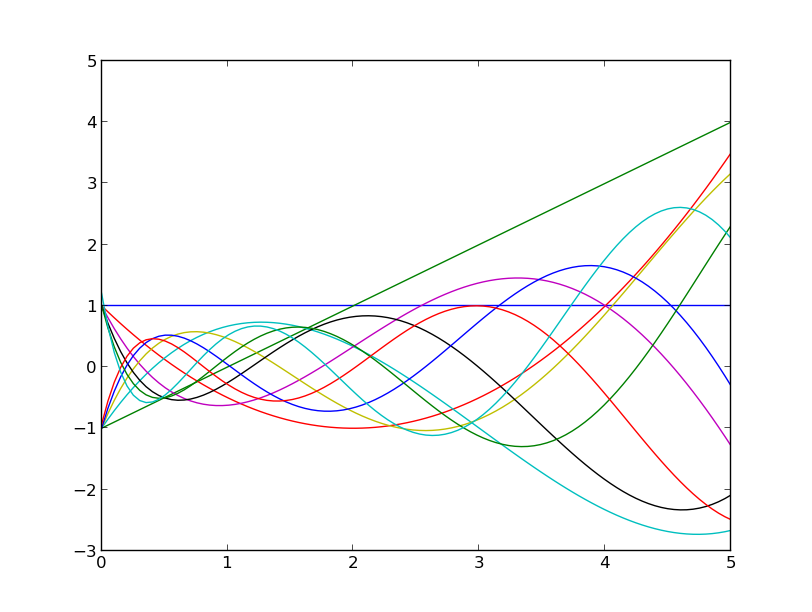A monic polynomial has highest coefficient equal to 1. How do you prove that if a monic polynomial has a rational zero, then this zero must in fact be an integer?
I can explain the full logical proof. Maybe there are other methods too?
Here's some nice polynomial art:

Do you mean a monic polynomial with 'rational' coefficients?
(By the way, I received 3SBD. Thank you:) )
Downvoting a post can decrease pending rewards and make it less visible. Common reasons:
Submit
I think the easiest way to prove that is the following:
Let f(x)=x^{n}+a_{n-1} x^{n-1} + ... a_{0} be a monic polynomial with rational coefficients and let p/q be a root of this polynomial. (Here, q is nonzero, p and q are coprime.)
Then we have
(p/q)^{n} + a_{n-1} (p/q)^{n-1} + ... + a_{0} = 0.
By multiplying q^{n} on the both sides, we get
p^{n} + a_{n-1} p^{n-1}q + ... a_{0} q^{n} = 0,
i.e., p^{n}=-( a_{n-1} p^{n-1}q + ... a_{0} q^{n} ) .
Since ( a_{n-1} p^{n-1}q + ... a_{0} q^{n} )is a multiple of q, q must divide p^{n}. Also, since p and q are coprime, q must divide p as well. Now we can conclude that q=1 and p/q is an integer .
Downvoting a post can decrease pending rewards and make it less visible. Common reasons:
Submit
Excellent, that's how I did it
Downvoting a post can decrease pending rewards and make it less visible. Common reasons:
Submit
I did not take that into account. It would seem that having rational coefficients is required, but I think it would work for real or complex coefficients as well, just as long as the zero is rational.
Downvoting a post can decrease pending rewards and make it less visible. Common reasons:
Submit